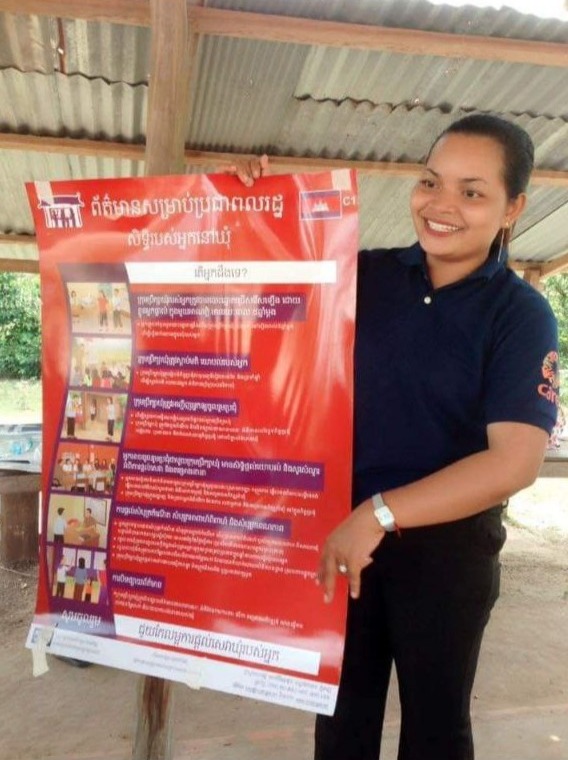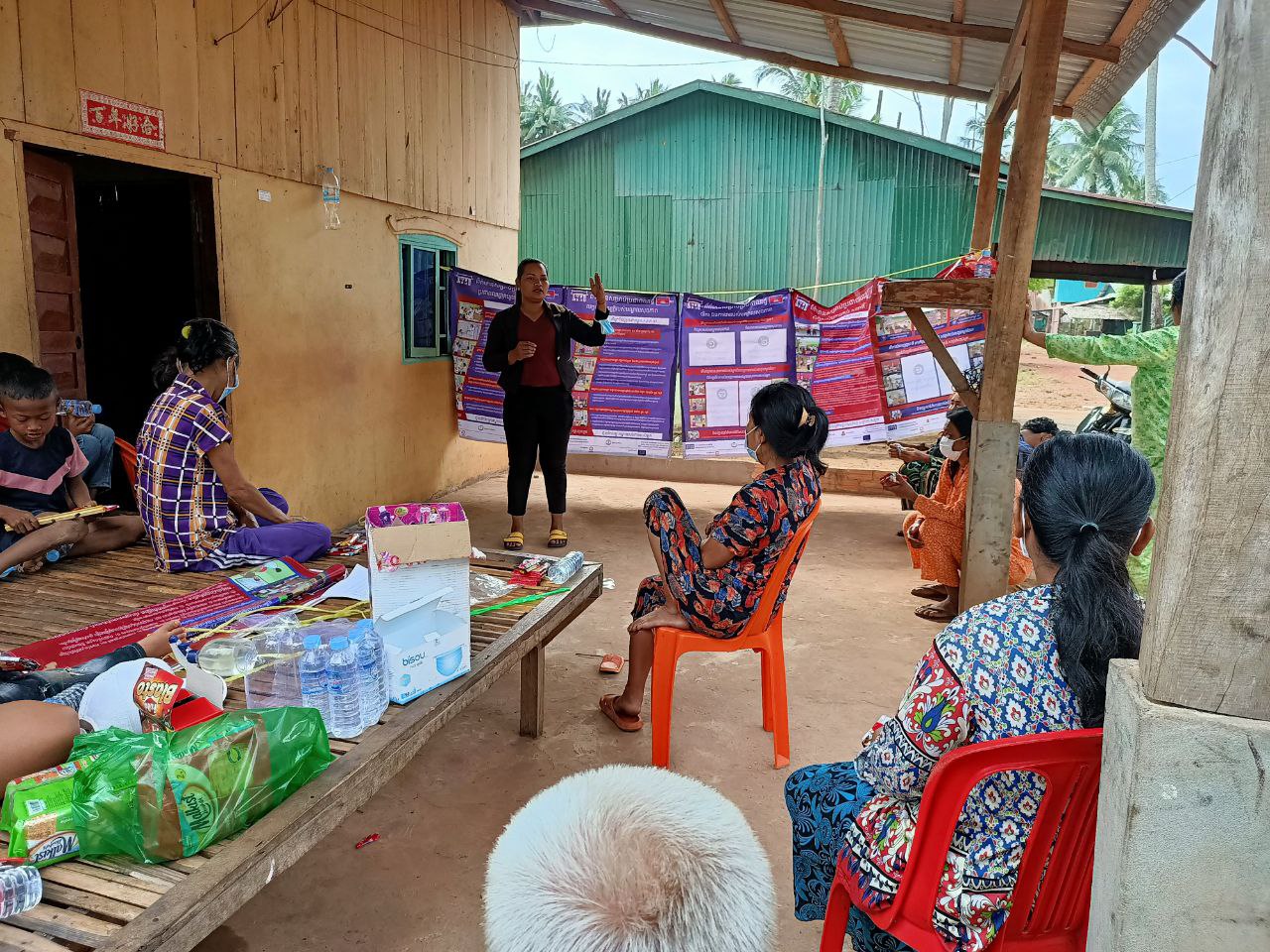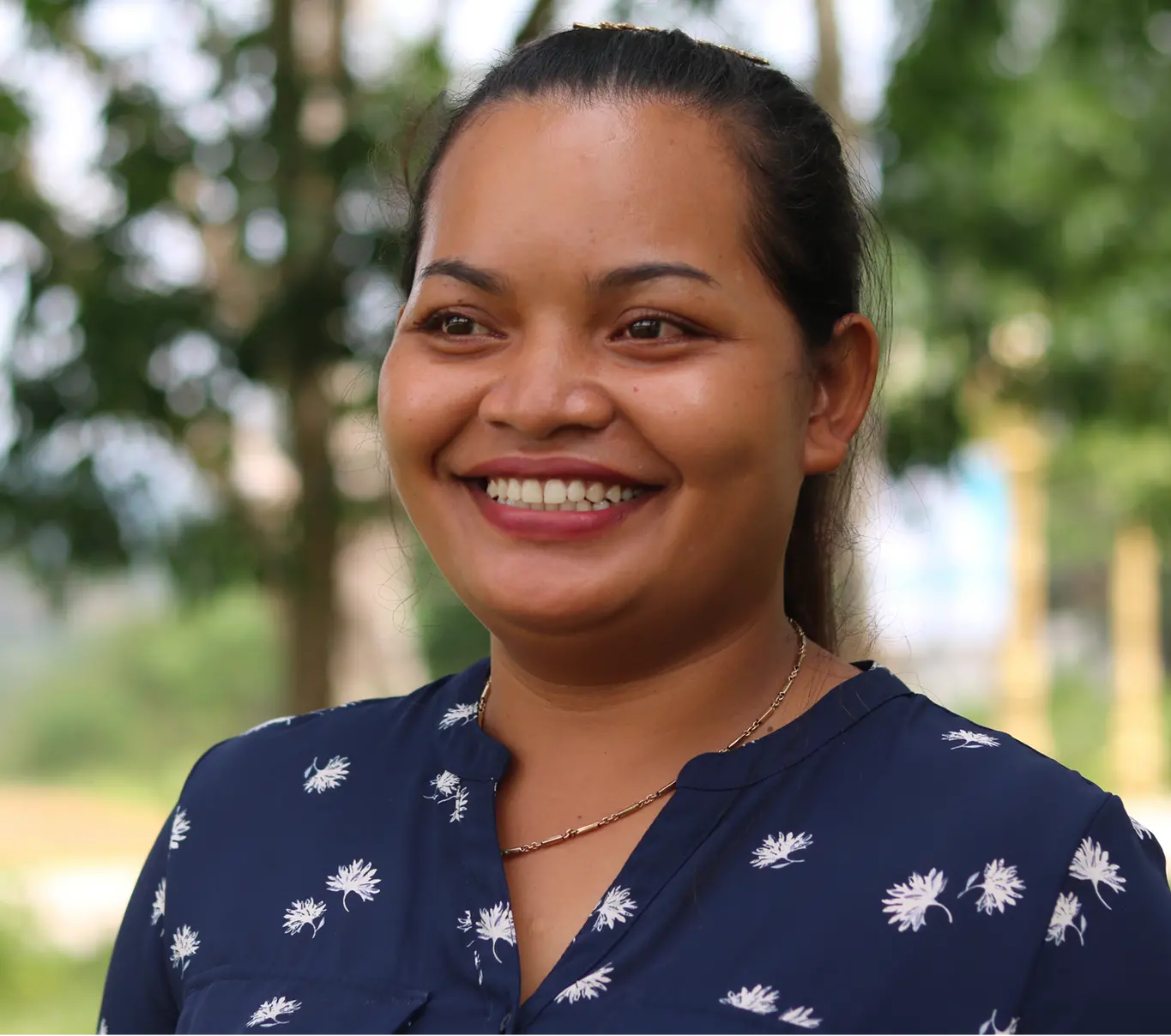For many of Davy’s fellow community members, meeting with local authorities to express their concerns and desire for improved public services was a daunting and almost impossible task due to limited clarity of their rights and public standards. Davy was motivated to volunteer for the ISAF project as she could see that the local service providers were not taking initiative to provide better services and support to her community,
“I think it’s a great opportunity for me to contribute to the community while creating positive changes and at the same time developing my leadership skills,” said Davy.
The ISAF overarching goal is to develop effective, accountable, and transparent institutions at all levels and ensure public access to information and fundamental freedoms. In the past, citizens have been called to community meetings without receiving adequate information of what the meetings are about. This has led to a lack of social dialogue between the sub-national administrations and the citizens. Through the ISAF project, CAFs like Davy are provided with the tools to raise awareness around citizen’s rights through the I4C materials.
Davy is working to mobilise and empower her community by meeting with different community members such as youth representatives, people with disability and women and ethnic minorities. Davy believes everyone should be able to engage in the planning and budgeting for their community,
“I have been working hard to raise the communities’ awareness on their rights to receiving better services such as health care, schools and administration, regardless of their background and social status.”
Davy is ensuring people in her community are aware of their roles and rights to participate in community meetings. She is explaining how they can and should raise their concerns and needs, otherwise the community councilors will not be aware of their concerns and the issues will not be addressed. The community scorecard meetings bridge the gap between communities and service providers, aiming to call for action to improve the local service delivery.
“I am proud to be a CAFs volunteer, I have noticed that people in the community, especially the equity card holders and people with disability have an improved understanding on their rights to services. People are confident to speak up and question the local authorities. We are seeing changes within community administration such as paying greater attention to the needs of the community in a timely manner. The health centre staff are becoming more open to dialogue with the village community. We are also finding that the teacher’s are paying greater attention to the students and are starting to build relationships with the parents.”
ISAF project not only aims to improving the local service delivery, but also strive to improve the capacity development of CAFs, Davy explains, “I am empowered by what I do, and my knowledge related to leadership and facilitation skills is improving. I have learned the concepts and practicality of social accountability from the training and am sharing the knowledge through the awareness raisings and community scorecard meetings. Most importantly, I have built rapport with the people in my community and the service providers.”

Davy holding a poster with community service information.
Davy is hopeful for even greater community engagement, especially for more women to engage more in public meeting. “It is important for communities to voice their concerns so that those concern can be addressed for the benefit of the whole community.” Davy wishes for all women to have an understand of their rights, and receive the economic benefits from within their community.


